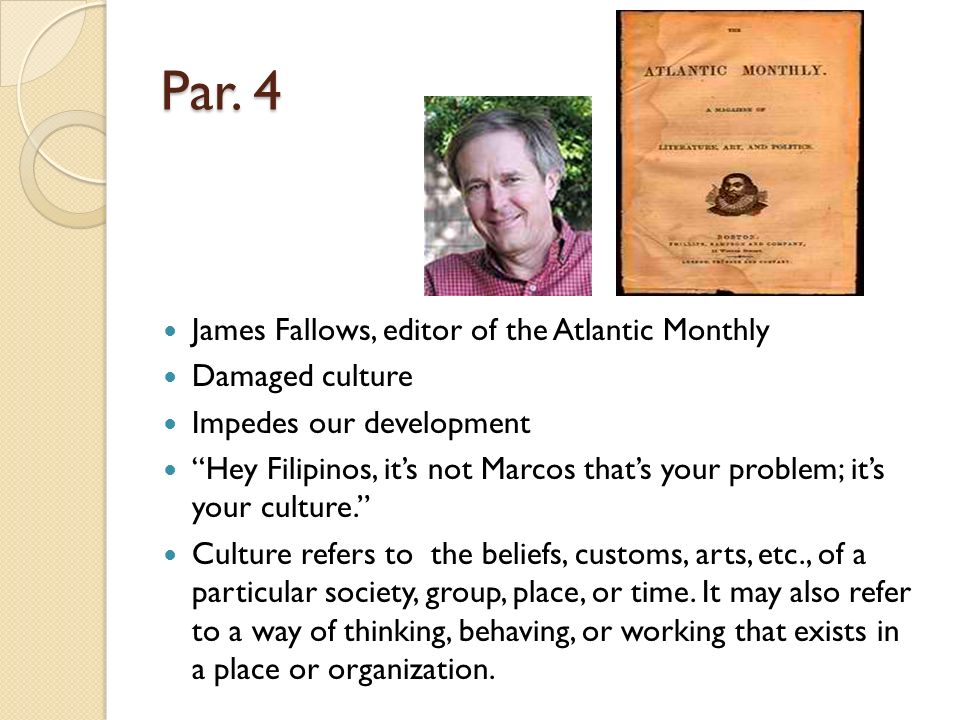

Neither writer would ever put things as baldly as he did.ģ) Culture as time-waster, from the campaign's point of view. Like, I suspect, many Atlantic readers, I am well familiar with the two books that Romney said gave him his "culture explains everything" outlook: Jared Diamond's Guns, Germs, and Steel, and David Landes's The Wealth and Poverty of Nations. And to go back to the beginning, this broadened assessment of the Palestinians' situation is exactly what Mitt Romney did not apply when speaking of them. Now we're talking about the entire network of formal and informal rules that constitute civil society. If you define "culture" to include everything from family structure to Constitutional liberties to representative government to copyright protection and rule of law, as Romney essentially does in his followup essay, you've removed all meaning from the term.


The rules changed to encourage and allow people to behave in different ways.Ģ) Culture as meaningless grab bag. Chinese "culture" did not suddenly become more ambitious and entrepreneurial in 1979. Behavior and incentives in these cases differed wildly - a visit to the old divided Berlin made that dramatic - but that was mainly because of contrasts in political systems and rules. This is like saying that the main difference between East and West Germany in the old days, or between China when it was starving in the 1950s and when it is prospering now, was the variation in German or Chinese "culture." Unt-uh. Or, as in Romney's case, not even to get around to mentioning the structural, legal, and financial-system differences that might contribute to Palestinian poverty. But when you are comparing the performance of self-governing, always-threatened-but-militarily-dominant Israel with that of Palestinians in governmental limbo and under occupation, it is axe-grinding rather than enlightening to start with "cultural" differences.

I argued that culture was important in assessing the Philippines' problems because in other ways - structure of government, letter-of-the-law freedoms - it resembled countries that had fared much better. In my experience, culture is the explanation you should look for after you've tried and exhausted others. How does this apply to Mitt Romney's already-much- discussed comments that " culture" explains Israel's success in business, the comparative failure of the Palestinians, and the cross-border differences between Mexico and the United States? (Original comments here followup column by Romney here.) My points:ġ) Culture as last, not first, explanation. The central liberal truth is that politics can change a culture and save it from itself." It is hard to top the standard quote attributed to Daniel Patrick Moynihan: "The central conservative truth is that it is culture, not politics, that determines the success of a society. I also understand that "culture" is the beginning rather than the end of such explanatory efforts. (Openness to immigration, toleration for failure and opportunity for the second chance, attempts to level the playing field, etc.) At around the same time I infuriated many residents of the Philippines with an Atlantic article suggesting a " damaged culture" explanation of that country's ongoing woes. and Japan - and arguing that America would do best if it made the most of the cultural and structural traits that were distinctively our own. In the late 1980s, after living in Japan, I wrote a book examining cultural differences between U.S. I accept the idea that "culture" has a legitimate part in explaining national or regional success.


 0 kommentar(er)
0 kommentar(er)
